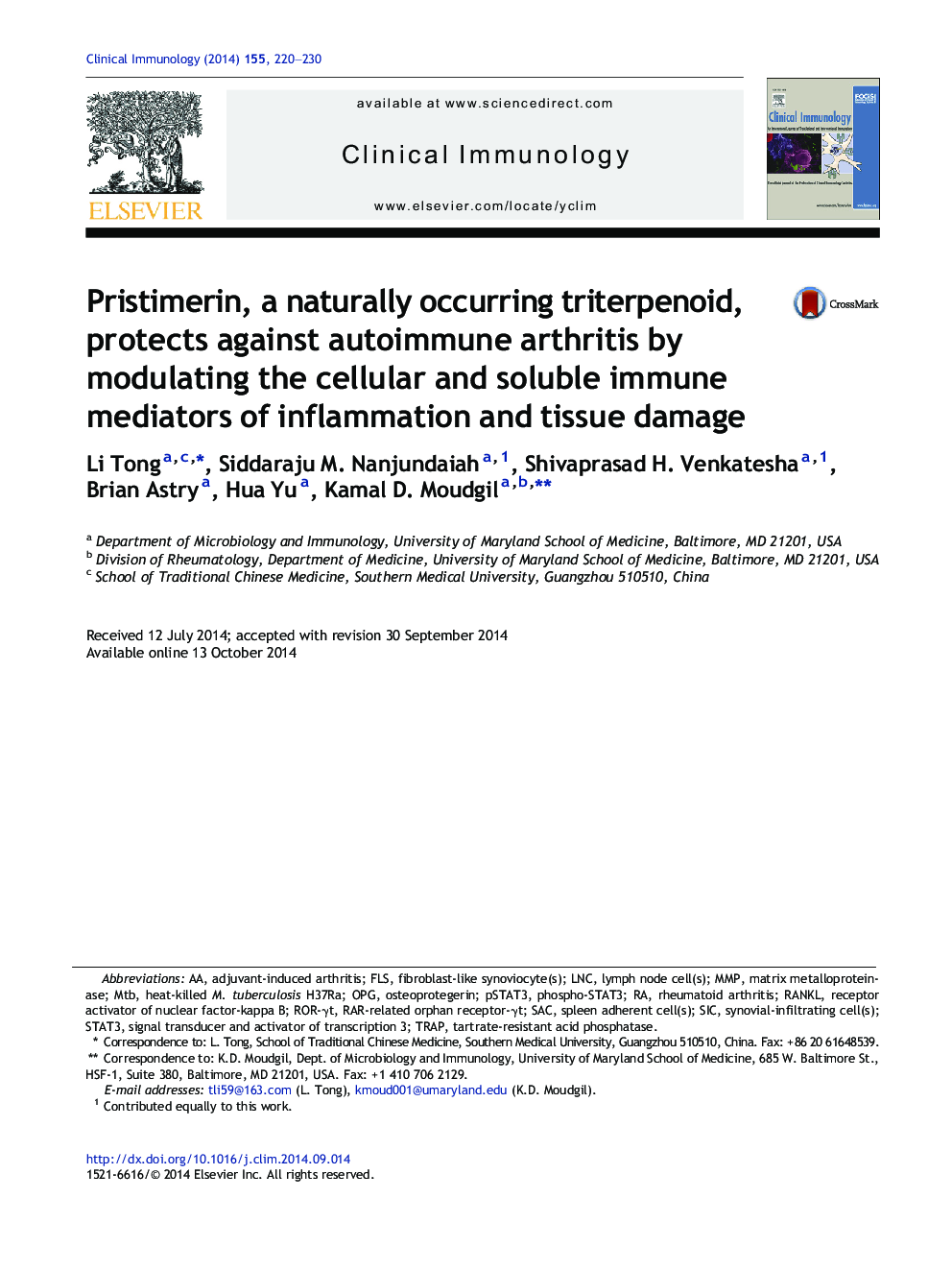| Article ID | Journal | Published Year | Pages | File Type |
|---|---|---|---|---|
| 3256863 | Clinical Immunology | 2014 | 11 Pages |
•Pristimerin, a bioactive of Celastraceae plants, suppresses rat adjuvant arthritis.•Pristimerin alters the balance of pro- versus anti-inflammatory cytokines.•Pristimerin skews RANKL/OPG ratio towards anti-osteoclastogenesis.•Pristimerin treatment reduces Th17 but increases Treg frequency in arthritic joints.
Rheumatoid arthritis (RA) is a chronic autoimmune disorder affecting the synovial joints. The currently available drugs for RA are effective only in a proportion of patients and their prolonged use is associated with severe adverse effects. Thus, new anti-arthritic agents are being sought. We tested Pristimerin, a naturally occurring triterpenoid, for its therapeutic activity against rat adjuvant arthritis. Pristimerin effectively inhibited both arthritic inflammation and cartilage and bone damage in the joints. Pristimerin-treated rats exhibited a reduction in the pro-inflammatory cytokines (IL-6, IL-17, IL-18, and IL-23) and the IL-6/IL-17-associated transcription factors (pSTAT3 and ROR-γt), coupled with an increase in the immunomodulatory cytokine IL-10. Also increased was IFN-γ, which can inhibit IL-17 response. In addition, the Th17/Treg ratio was altered in favor of immune suppression and the RANKL/OPG ratio was skewed towards anti-osteoclastogenesis. This is the first report on testing Pristimerin in arthritis. We suggest further evaluation of Pristimerin in RA patients.
